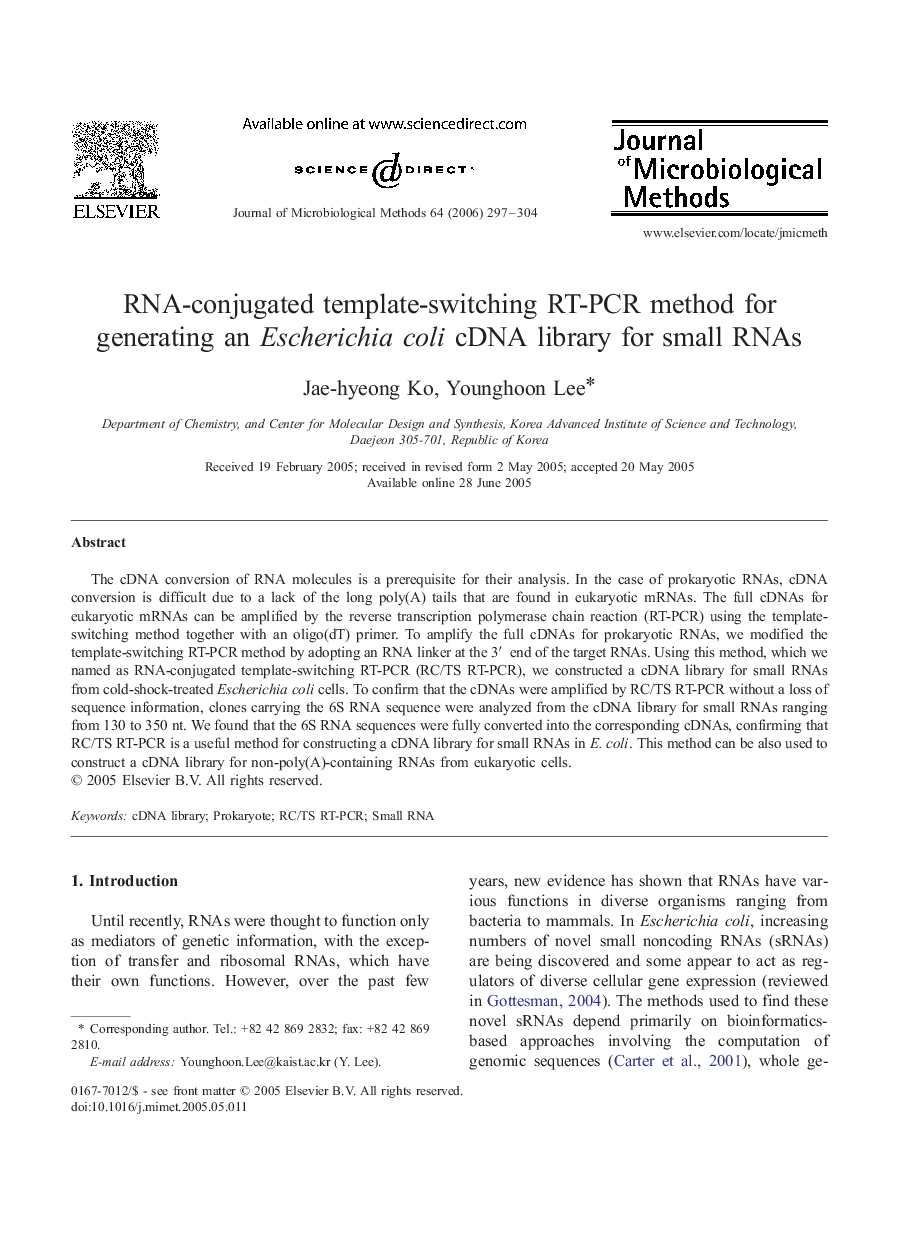| Article ID | Journal | Published Year | Pages | File Type |
|---|---|---|---|---|
| 2091347 | Journal of Microbiological Methods | 2006 | 8 Pages |
The cDNA conversion of RNA molecules is a prerequisite for their analysis. In the case of prokaryotic RNAs, cDNA conversion is difficult due to a lack of the long poly(A) tails that are found in eukaryotic mRNAs. The full cDNAs for eukaryotic mRNAs can be amplified by the reverse transcription polymerase chain reaction (RT-PCR) using the template-switching method together with an oligo(dT) primer. To amplify the full cDNAs for prokaryotic RNAs, we modified the template-switching RT-PCR method by adopting an RNA linker at the 3′ end of the target RNAs. Using this method, which we named as RNA-conjugated template-switching RT-PCR (RC/TS RT-PCR), we constructed a cDNA library for small RNAs from cold-shock-treated Escherichia coli cells. To confirm that the cDNAs were amplified by RC/TS RT-PCR without a loss of sequence information, clones carrying the 6S RNA sequence were analyzed from the cDNA library for small RNAs ranging from 130 to 350 nt. We found that the 6S RNA sequences were fully converted into the corresponding cDNAs, confirming that RC/TS RT-PCR is a useful method for constructing a cDNA library for small RNAs in E. coli. This method can be also used to construct a cDNA library for non-poly(A)-containing RNAs from eukaryotic cells.
